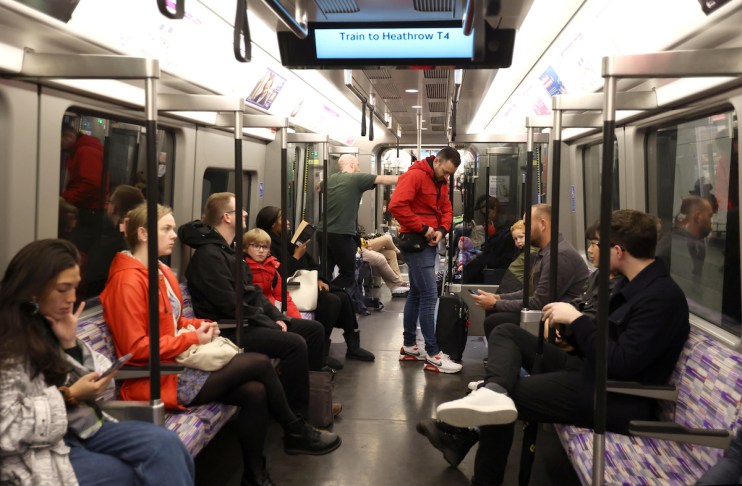Elizabeth Line usage soars by 41 per cent as London commuters get around tube and rail strikes

One in six journeys on Britain’s transport network have been made on the new Elizabeth line, with 62m taken on London’s newest railway between October and December 2022.
Out of almost 370m rail passenger journeys across the UK, Crossrail accounted for 41 per cent, according to new figures released by the Office for Rail and Road.
The Elizabeth Line proved to be the jewel in Britain’s rail network crown however, after having been launched in by Her Late Majesty Queen Elizabeth II, whom it is named in honour of.
Between October and December there were 266 million journeys across the UK, with 62m on the Elizabeth line, representing one in six.
This is 85 per cent of the 314m journeys overall in 2019, while there is no comparison for Crossrail, which opened in 2022.
Continued industrial action however dented rail usage overall, with the 369m journeys at 80 per cent of the 460m from the same quarter in pre-pandemic times.
ORR figures that there were more than 1.3bn journeys made in 2022 overall, still only 75 per cent on the same number three years ago before Covid. Revenue also followed a similar trend, down to £2.1bn compared to £3.2bn from pre-pandemic.
Strikes in the first week of October by RMT, Aslef and TSSA unions brought the rial network to its knees, with services at just 13 per cent of normal. This was followed by action in mid-December which brought it to just 20 per cent, while before and after Christmas it was about 50 per cent of normal.
Howard Smith, TfL’s Director of the Elizabeth line, said: “The Elizabeth line continues to be transformational for people travelling across London and the South East. The huge numbers of customers using our accessible trains and stations is a real testament to the railway and all those involved in keeping it running.
“In November we improved services with trains running directly into central London, and we are now working towards delivering the next stage of Elizabeth line in May, which will increase peak train frequencies and provide additional capacity to Heathrow Airport and across London.”
Can Elizabeth line’s success spread to HS2?
While the £20bn Crossrail project has larglely been heralded as a success, the government has been heavily criticised for continued delays on its other major infrastructure project, HS2.
Last week it was reported HS2 is at risk of being “dismembered” and never resurrected after further delays were announced by the Government, peers heard.
Transport Secretary Mark Harper said: “We know the power of transport as an engine for sustainable economic growth. That’s why – even in this tough economic climate – this government sees transport investment as a down payment on the country’s future and is committing £20BN over each of the next 2 years to improve the UK’s transport network.
“But we can’t ignore the current realities.”
“Putin’s war in Ukraine has hiked up inflation, sending supply chain costs rocketing. The responsible decisions I’ve outlined will ensure we balance the budget at the same time as investing record sums in our transport network to help halve inflation, grow the economy and reduce debt.”
Seb Dance, Sadiq Khan’s deputy mayor for transport, said: “The Elizabeth Line has transformed the way Londoners get around and continues to go from strength to strength”.
“The success of the Elizabeth Line highlights how vital the delivery of major transport infrastructure is for our long-term economic growth, in London and across the country.
“This only further demonstrates why the Government must not delay HS2 and why terminating the HS2 route at Old Oak Common is not a viable option due to the serious impact it would have on other parts of our transport network.”
